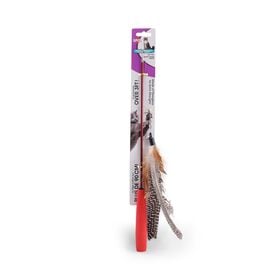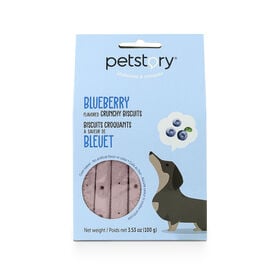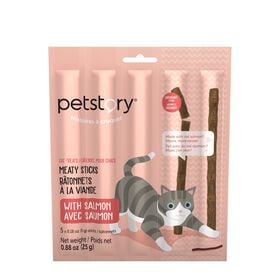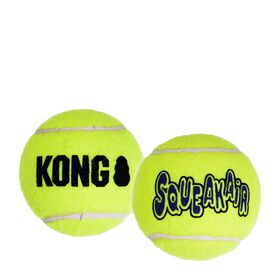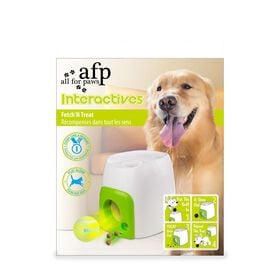It's International Hug Day, and what a beautiful day it is! An entire day dedicated to giving praise and showing affection! There are very few places on earth where hugging isn't known to bring immense joy. Who doesn't love being squeezed by a loved one or holding their pet in their arms to show them they love them?
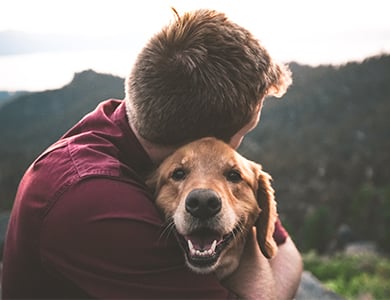
The chemistry of hugging
In addition to being a source of great comfort and love, hugs have a number of positive effects on our mental and physical health. Giving and receiving hugs releases a cocktail of powerful hormones, including endorphins, oxytocin, serotonin, and dopamine. Each hormone has its own virtues that help us achieve a sense of well-being and even euphoria and have a sedative and tranquilizing effect. Hugging therefore helps reduce stress and anxiety, decreases blood pressure, and reinforces our self-esteem, as well as our immune systems. A study by the University of Washington showed that hugs are essential to babies’ emotional, psychological and intellectual development.
Hence why being in the presence of an animal can create similar chemical reactions among humans. We can’t deny the relaxing power of a cat’s purr, or how a few tail wags or licks from our puppy can turn our frowns upside down. And we all what know it’s like to get a warm welcome at the door as soon as we arrive home.
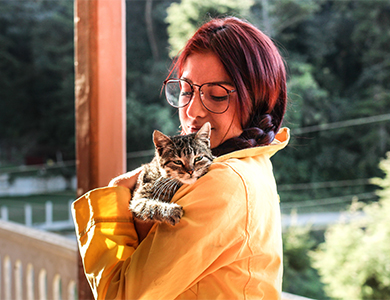
When animals cure illness
Dogs
Always excited to see us, and always ready to help, dogs have a unique way of comforting us. They show us affection when we’re angry or in pain, making us believe they know something we don’t. What a treat it is to enjoy the company of these loyal, devout creatures who are so sensitive to our emotional needs! Dogs are without a doubt man’s best friend, and these qualities make them the ideal partners for zootherapy.
While dogs remain the partner of choice in zootherapy, there are a number of other animals who make great teammates.
Cats
Cats, for example, are often used in geriatric settings. They are known to be therapeutic for older people, those who have lost their autonomy and for dementia sufferers. Cats are gentle, calm and always up for some fun — not to mention a good snuggle! Also, their featherweight makes them ideal for long periods of lap sitting. Armed with some cat teasers and some delicious treats, the zootherapist can work on a number of objectives, such as activating patients’ upper limbs as well as their fine motor skills.
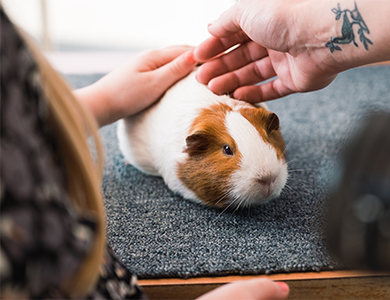
Small animals
Rabbits also tend to cause a frenzy among old and young alike. Soft and gentle, bunnies can help stimulate the senses of autistic children, and their small size make them ideal bed buddies for bedridden patients, as well as those in wheelchairs. Known to be anxiety-ridden, rabbits are a good projection tool during sessions with people who suffer from anxiety. Their large ears can teach us to adapt our listening skills and tone of voice as well as the language we use. Kids tend to lower their voices around bunnies so as not to scare them.
Then, there are those animals who we often greatly underestimate but who nonetheless have a number of unique characteristics that can come in handy during interventions. For instance, it can be amazing to witness how ferrets teach children with ADHD how to pay attention and maintain a sense of calm. The child becomes aware of the impact of their actions by observing and experiencing them along with the animal. Likewise, you can use the ferret’s unique odour to teach them about hygiene and why washing is important.
There are a number of toys and accessories available which can help liven up your sessions. For instance, activities involving tunnels and ball pools can make your meetings truly dynamic! Hedgehogs are another pet that can help develop a gentle approach and work on sensory defenses.
In short, just as the possibilities are endless when it comes to zootherapy, so too is the variety of animals you can use, and the benefits you will gain from participating.
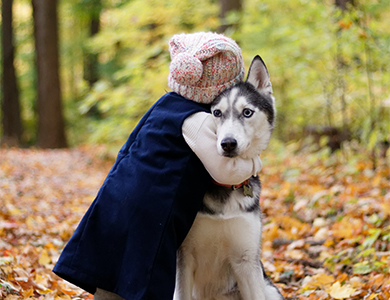
Enjoy the International Hug Day properly
January 21st is International Hug Day, which deserves to be celebrated in style. Take advantage of this opportunity to show your affection and spoil these little creatures who give body and soul while getting nothing in return. So, treat your pup to a toy or buy your cat some treats to make them feel special! What’s most important is that you give them the attention they deserve, to take the time to hug them, kiss them, play with them and help them expend some energy.
If you yourself are looking for the services of a zootherapist, visit the website of La Corporation des Zoothérapeutes du Québec. There you will find a list of professionals organized by area and specialty.


